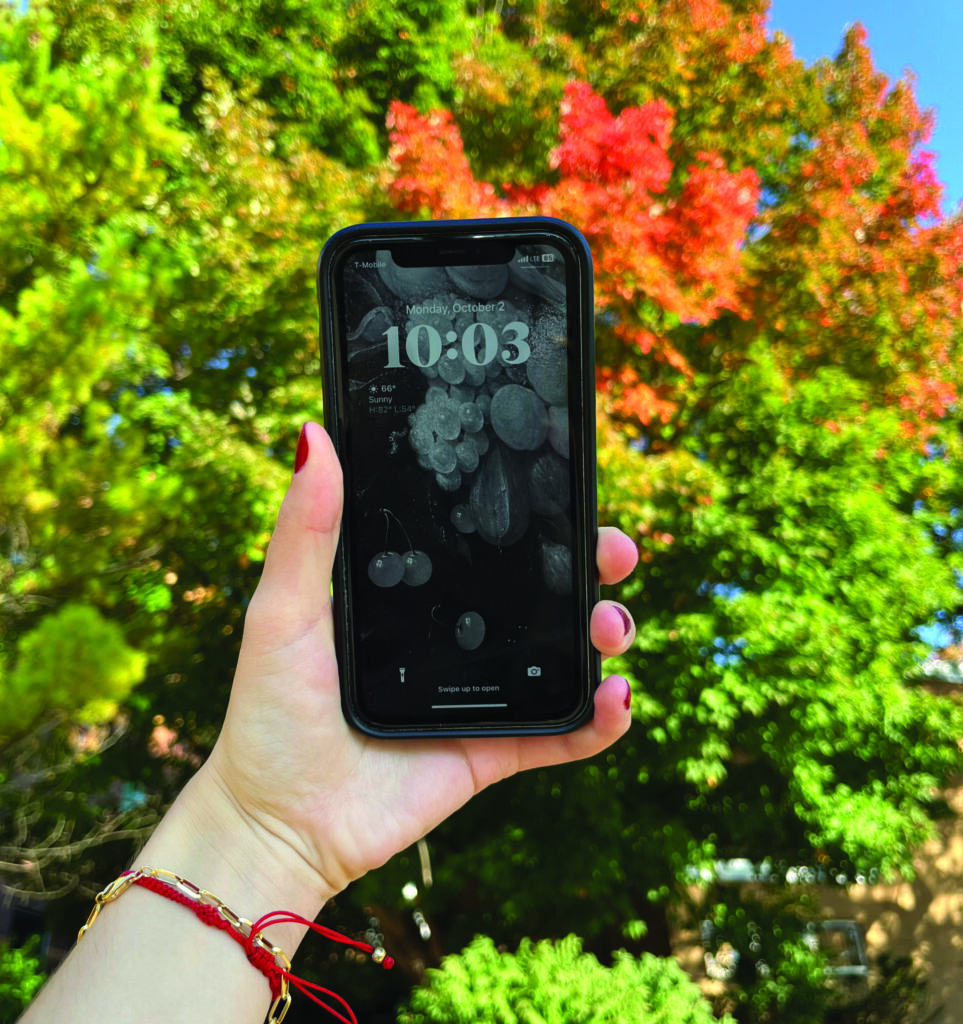The leaves are a gorgeous range of green, yellow, orange and red, and my phone screen is in black and white.
One of the most long-lasting effects that pandemic-era virtual schooling has had on me is screen dependency.
Once again, I am sick of turning to my phone whenever the room is silent or I’m nervous about the task at hand. It was my anxious instinct to open Instagram and avoid everything else.
My phone was often something to keep my brain occupied and quiet, like a pacifier for a crying child.

I’ve confiscated the bright colors in my phone from myself, deleted most of my social media apps and instructed my friends to remind me when I mindlessly scroll like an “iPad baby.”
The point of it is to retrain my brain to look for something interesting in other places. It is genuinely frustrating to look for Instagram or a saturated home screen and find only a gray brick with a few missed calls or texts. I have to outsource my dopamine from the real world now.
I won’t project my own bad habits onto my whole generation. I have friends who have never used social media. My best friend, co-worker and roommate turns to puzzle games like Kanoodle to occupy her mind instead of a phone.
On the other hand, I also know plenty of people my age who do not have the attention span to watch a movie in one sitting. I’ve had too many conversations which made me feel like half of a split-screen, competing with TikTok for someone’s attention.
It hurts to admit that our parents were right about “the damn phone.” Forbes reports that Americans check their phones an average of 344 times per day, approximately once every 5.5 minutes.
It’s hard to avoid constant phone checking. It’s where we look at the time, schedules, emails, assignment notifications, texts and news. Apps are programmed to notify us for the smallest things once they see that we’ve been less active.
Instagram notifies us that someone we may know also uses the app. Netflix tells us when a new season for a show we’ve never watched comes out. YikYak shows up on our home screens just to remind us that other people have posted that day.
My personal favorites are the sad, borderline cruel dating app messages users get before their profile is hidden from lack of use. They might as well say, “Someone just got a match! It wasn’t you, though.”
App programmers and advertisers depend on us using our phones impulsively. They’re designed to keep us inside the app and forget that the rest of the world exists.
The next time you get your weekly screen time reminder, I invite you to look through those numbers and see how much of your life you scroll away every day.
